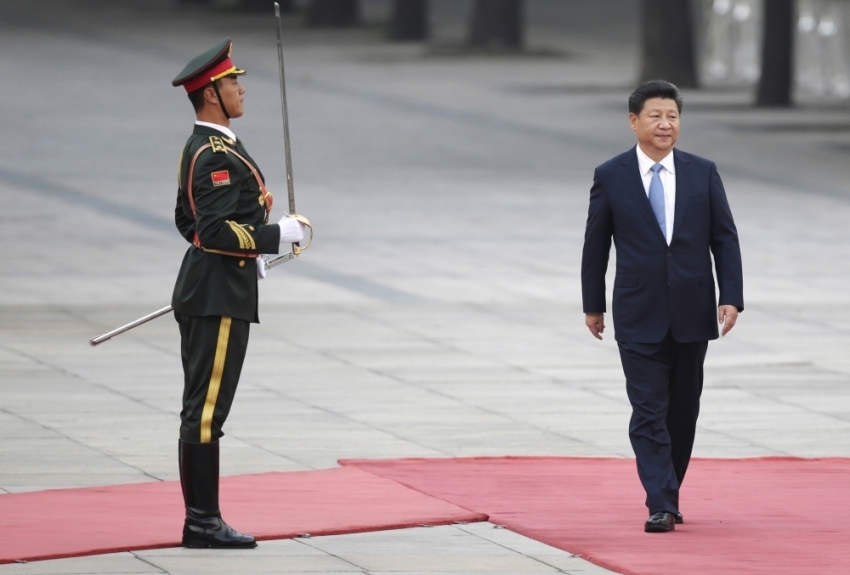China responds to US shooting down ‘Red Zeppelin’ as tensions rise

Tensions between the U.S. and China escalated further this weekend with the Chinese foreign ministry expressing extreme displeasure after the U.S. military shot down a suspected Chinese surveillance balloon, nicknamed “Red Zeppelin,” off the eastern seaboard Saturday, several days after it had flown thousands of miles over the continental U.S.
U.S. Secretary of Defense Lloyd Austin said in a statement that the balloon was sent to surveil strategic sites in the continental U.S.
A U.S. F-22 fighter jet used an Aim-9X Sidewinder missile on Saturday — four days after news of its existence spread worldwide when a Billings Gazette photographer in Montana took photos of it with a large telephoto lens — to destroy the spy balloon when it was six nautical miles off the southeast coast in U.S. airspace, The New York Times reported.
The tensions have led to the suspension of U.S. Secretary of State Antony Blinken’s scheduled trip to Beijing, which would have been the highest-level U.S. visit to China in four years.
Blinken referred to the balloon, roughly the size of three buses, as a violation of U.S. sovereignty on Friday, according to Reuters.
China expressed strong dissatisfaction and protest against the U.S. for attacking what Beijing claimed was a civilian unmanned aircraft, according to a statement by the Chinese foreign ministry.
The ministry claimed the balloon entered U.S. territory accidentally due to "force majeure."
“China clearly asked the U.S. to handle it properly in a calm, professional and restrained manner. A spokesman for the U.S. Department of Defense also stated that the balloon will not pose a military or personal threat to ground personnel,” the statement reads. “China will resolutely safeguard the legitimate rights and interests of relevant companies, while reserving the right to make further necessary reaction.”
Experts warn that the relationship with China could spiral downward depending on Beijing’s response.
“It’s a bit worrisome when nuclear powers start shooting down the surveillance vehicles of the other, although surely the Chinese would have done the same if the situation were reversed,” The Wall Street quoted Daniel Russel, a former senior State Department official now with the Asia Society Policy Institute, as saying.
Before the concerns over the spy balloon, U.S. military aircraft had close encounters with Chinese military aircraft in the South China Sea region amid growing tensions over Taiwan.
President Joe Biden said he initially wanted to shoot down the spy balloon when it was spotted above Montana but was warned of the danger to residents on the ground.
Republicans criticized his delayed decision, calling it a display of weakness toward Beijing.
“On Wednesday when I was briefed on the balloon, I ordered the Pentagon to shoot it down — on Wednesday — as soon as possible,” Biden said after landing in Maryland to spend the weekend at Camp David to work on his State of the Union speech. “They decided, without doing damage to anyone on the ground, they decided that the best time to do that was as it got over water ... within a 12-mile limit. They successfully took it down and I want to complement our aviators who did it,” he added.
However, retired Army General Jack Keane, a former Vice Chief of Staff of the United States Army, didn’t agree with Biden.
“Remember, this was approaching the United States over water,” Keane told Fox News. “It was approaching the Aleutian Islands over water. And we had plenty of opportunity to take it down then. And that’s when it should have happened. We had to be tracking it from mainland China across the Pacific Ocean, and we had plenty of warning to put together an operation that we are conducting now on the East Coast that should have been done there.”



























